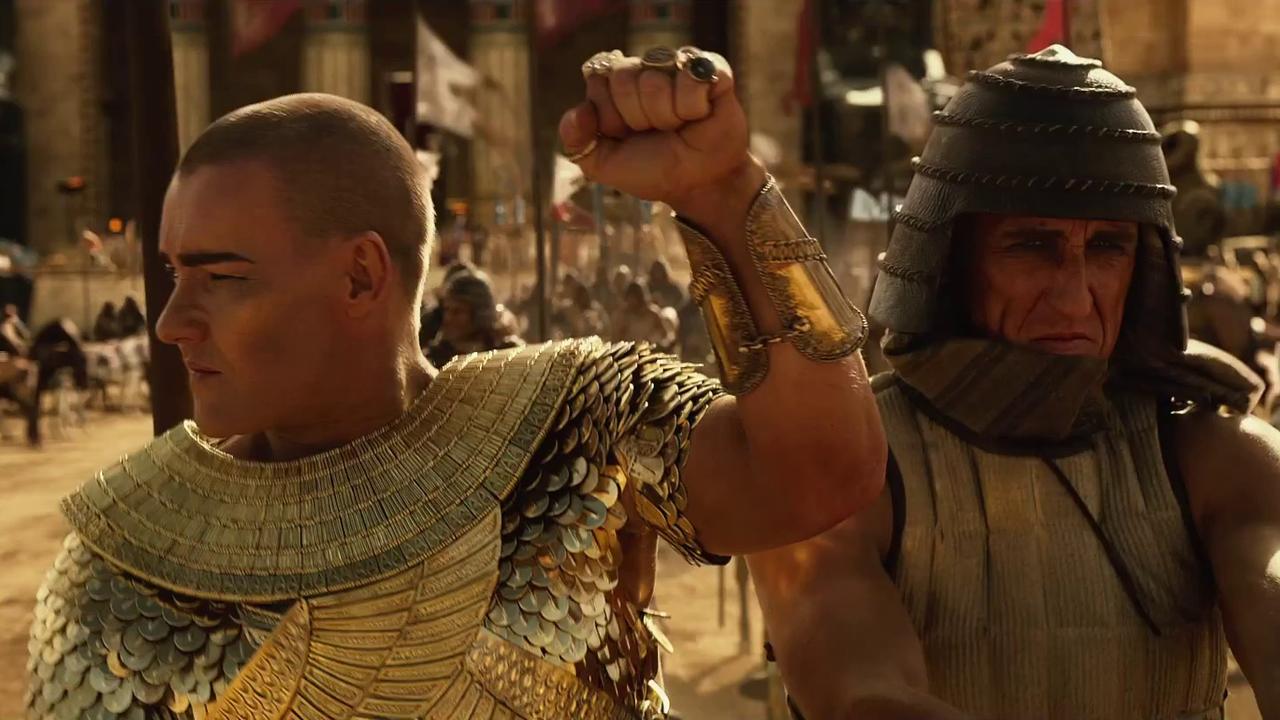Ridley Scott bit off more than he can chew with Exodus: Gods and Kings. The director knew he would have to please the pro-Bible audience members because of the grandeur of Moses’s story. On top of that, Scott has to compete against two already good versions of this same story: The Ten Commandments and The Prince of Egypt. Exodus: Gods and Kings assumes CGI plagues and whitewashed leads are compelling enough to attract viewers, which misses the mark in so many boring ways I almost fell asleep twice watching it.
The story should be familiar to everyone by now. Moses (Christian Bale) is adopted into the Egyptian royal family of Seti (John Tuturro) and son Ramses (Joel Edgerton). Moses is well respected by the Hebrew slaves because he finds out he was one of them. He is then banished into the desert where he marries and discovers a burning bush where God (Isaac Andrews) tells him to free his people. Plagues happen. Children die. Moses then leads the Jews out of bondage through the desert to their homeland, crossing the Red Sea in the process.
CGI and cinematography are Exodus’s strongest assets. The scope of this film is very big, with tracking shots establishing the size of the story. It is the best way to keep people engaged while characters are walking over endless desert. The Red Sea parting is pretty spectacular, especially the ending. That being said, some of the CGI is shockingly unnecessary. The plagues are particularly longwinded. There are about 10-20 minutes of frog jumping and locust flying. The crocodiles and the Nile is so ridiculous I laughed instead of being traumatized. The worst part about these plague sequences is how little impact they provide; we see ugly things happen, but feel no pain or discomfort at the plight of everyone involved.
Therein lies the biggest weakness of Exodus: the movie’s story says NOTHING about the people involved. The Ten Commandments gave its characters the Biblical proportions they deserve. Each major character booms when they speak and exude importance. The Prince of Egypt takes a different route, electing to add some Shakespearean tragedy to the Ramses/Moses relationship: I mean, they did grow up together. The CGI demands mean that Ridley Scott has to cut all the character building parts, rushing through them and disabling any impact the story can deliver during the Egypt scenes. In fact, the one interesting idea the movie has – Moses talking to a God no one can see – is brought up and quickly swept under the rug and forgotten, wasting a compelling study of faith.
The actors have holes to big to act out of as well. Christian Bale (a Christian playing Moses, ha) is probably the best character, playing mostly restrained and exuding leadership. Joel Edgerton will bear the woeful lighting rod of all the criticism, playing an Australian Egyptian. Ramses’s character is woefully written, forcing Edgerton to overact to compensate and add feelings where the story generates none. Many cameos here are pointless, topping the list Sigourney Weaver and Aaron Paul, especially since Paul already has a great desert acting resume.
Exodus: Gods and Kings is safe. Safe is a horrible word for a movie. Great films take chances and push the envelope (Noah, another Biblical epic, did that earlier this year); this film does neither. Please just let this movie’s release make you seek out either The Ten Commandments or the Prince of Egypt, both superior versions of this same story. Exodus: Gods and Kings has hate watch written all over it, equally likely to irritate every audience member who sees it.

